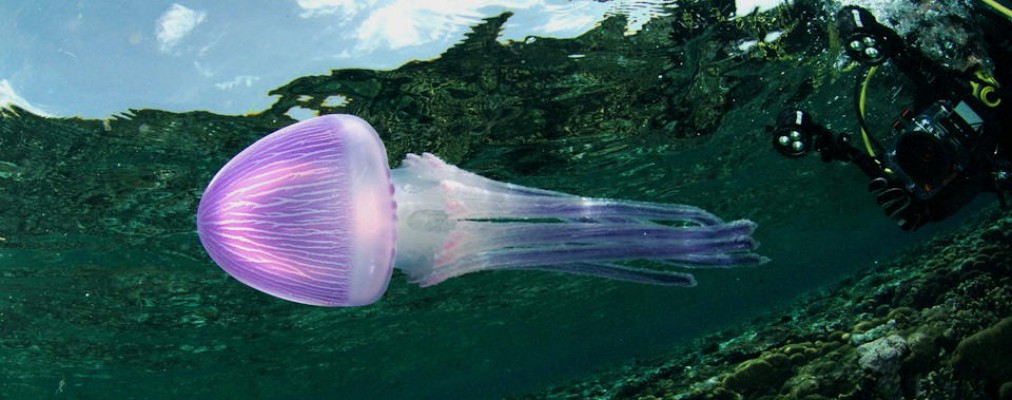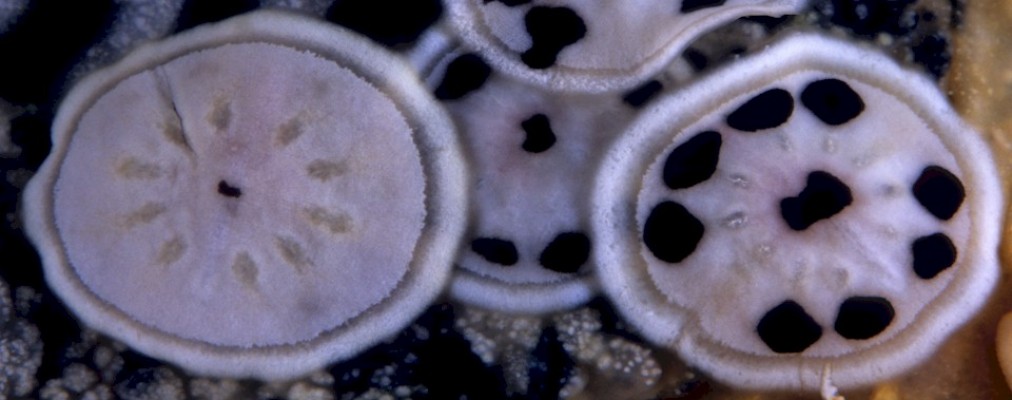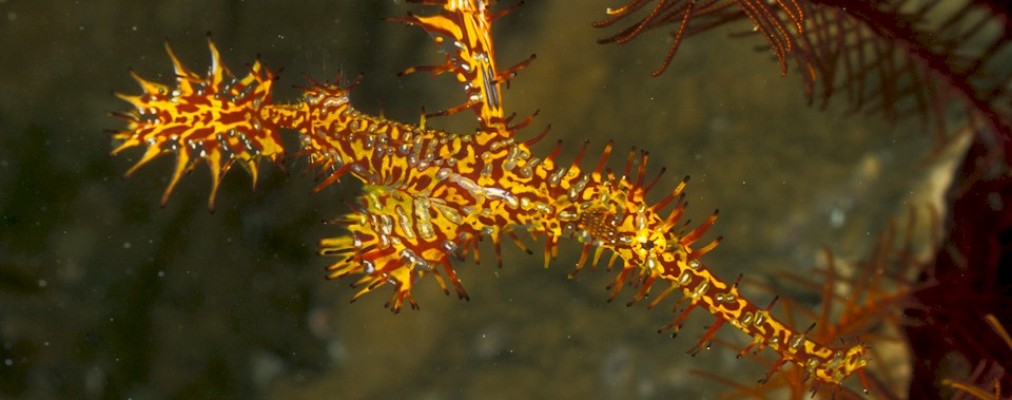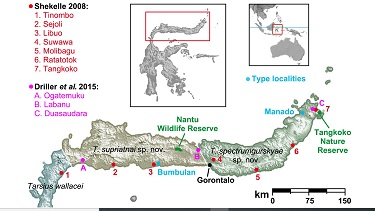Loading content - please wait...
Tarsius genus gains two Gorontalo species
Tarsius genus of primates gains two Gorontalo species
, thanks to recent research. Tarsiers are the smallest of primates. They are known for their large eyes, jumping ability, and shrill duet calls.Two New Species in the Tarsius Genus
Researchers Shekelle
, Groves, Maryanto, and Mittermeier published the result of their studies in 2017. In it, they named two new tarsier species. One is Tarsius supriatnai. Its name honors Dr. Jatna Supriatna. He sponsored most of the collaborative research on tarsiers in Indonesia. This new species lives in western Gorontalo until the Bone River. Its common name is Jatna’s spectral tarsier.The second new species is Tarsius spectrumgurskyae. Its name honors Dr. Sharon Gursky whose life work is tarsiers. This new species lives from east of the Bone River to the tip of the Minahasa peninsula. Its common name is Gursky’s spectral tarsier.
With these two new species
, the total species count for the Tarsius genus is now eleven. Based on developments in research , the species T. spectrum in no longer used.Duet Call Determines the Species
Although small physical distinctives exist between species
, the way researchers easily determine species in the field is by duet call. Tarsiers mate for life, and male-female pairs call to each other. Each species has a distinctive call. The female begins the call and the male answers. Then, their call continues in distinctive patterns as they sing their song together. Spectrogram analysis played a crucial role in the 2017 research. Moreover, genetic analysis confirms the identification based on duet call.Additionally, researchers discovered that geography is also a good way to determine species. With Sulawesi’s complex geological history, populations of spectral tarsiers developed in isolation. They also tend to remain close to where they were born.
The Smallest Primate
Tarsiers are known as the world’s smallest primate. From head to tail
, they measure between thirty and forty centimeters. Body weight is around 100 grams, although males can weigh up to 126 grams. Their arms and tail are especially long, given their small bodies. Moreover, their eyes are large and useful for nighttime foraging. They eat insects and lizards.Natural predators include snakes, owls, monitor lizards, and rats. Spectral tarsiers are listed as a protected species according to Indonesian law PP. No. 7/1999 and UU No. 5/1990.
Tarsiers are only found on Sulawesi and a few surrounding islands up to the southern Philippines. They live in dense forests. The two new species of spectral tarsiers can only be viewed in the wild with special arrangements. However
, trips to see each species must be organized separately since they live in different jungle reserves in Gorontalo. If you would like to arrange jungle trekking after your diving in Gorontalo, please let us know when you make your dive reservations with us.






